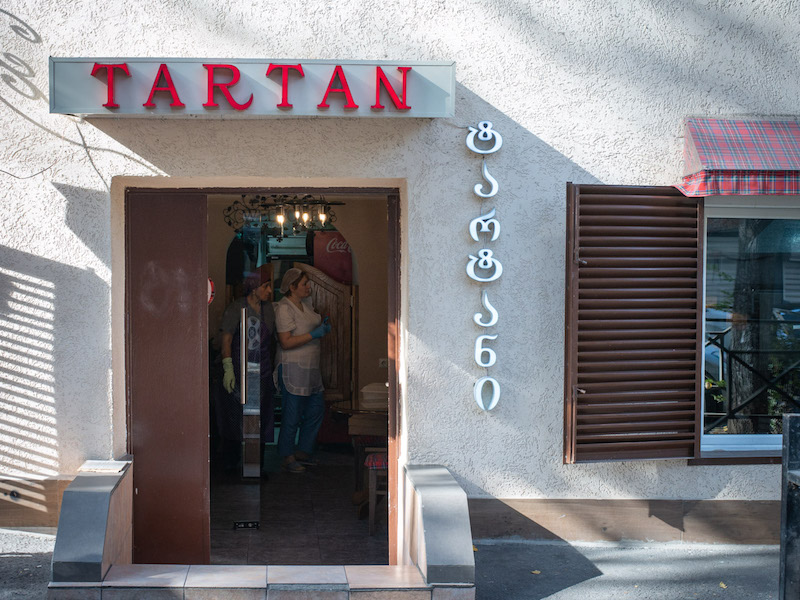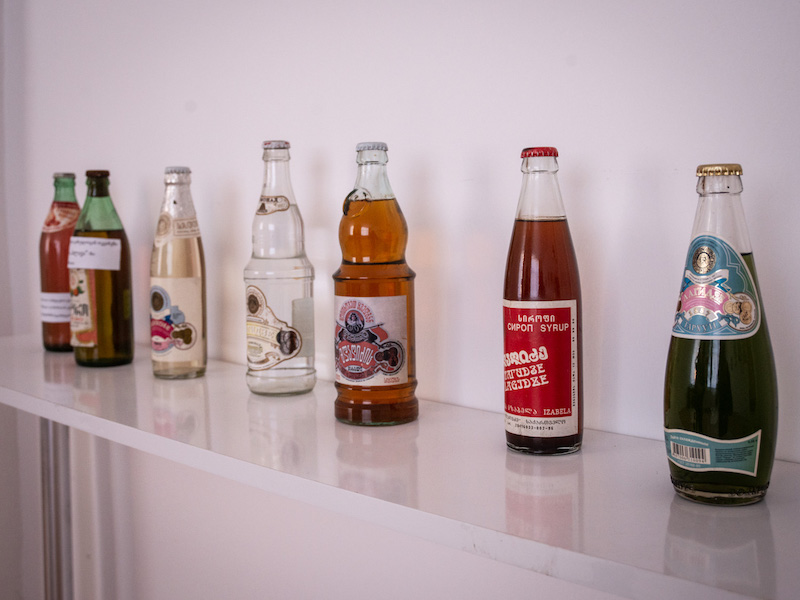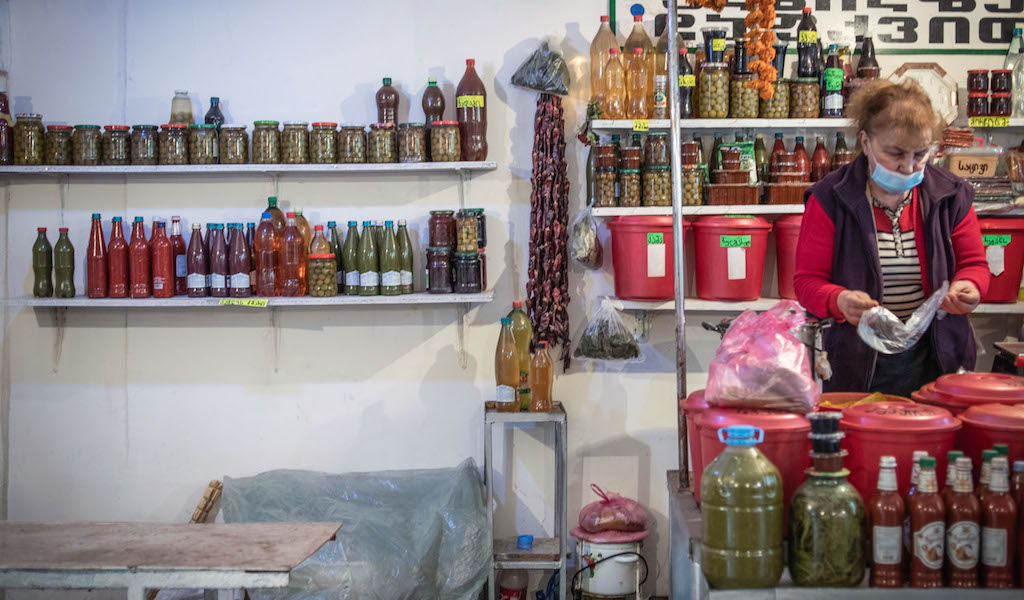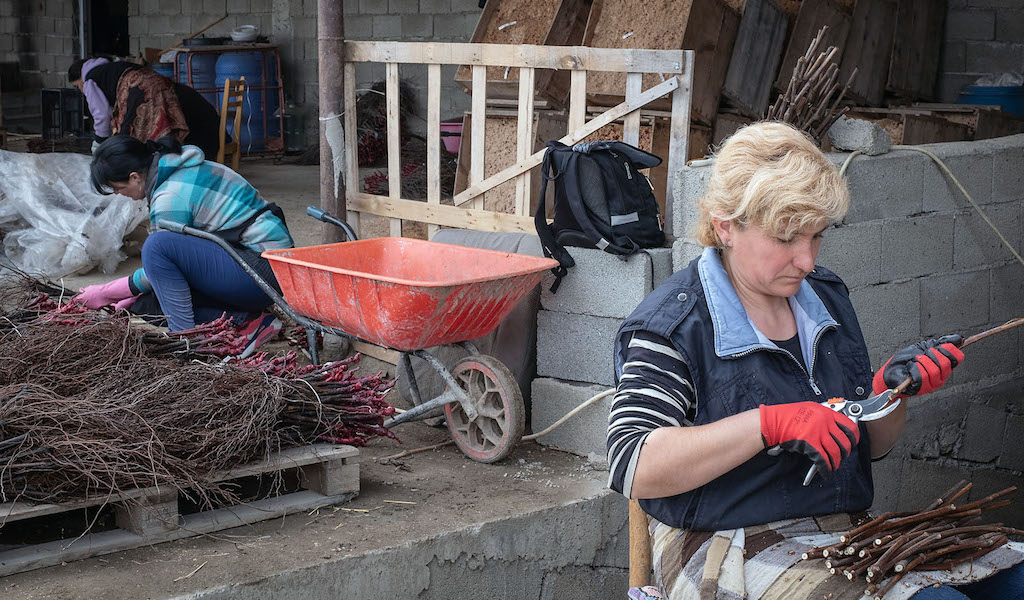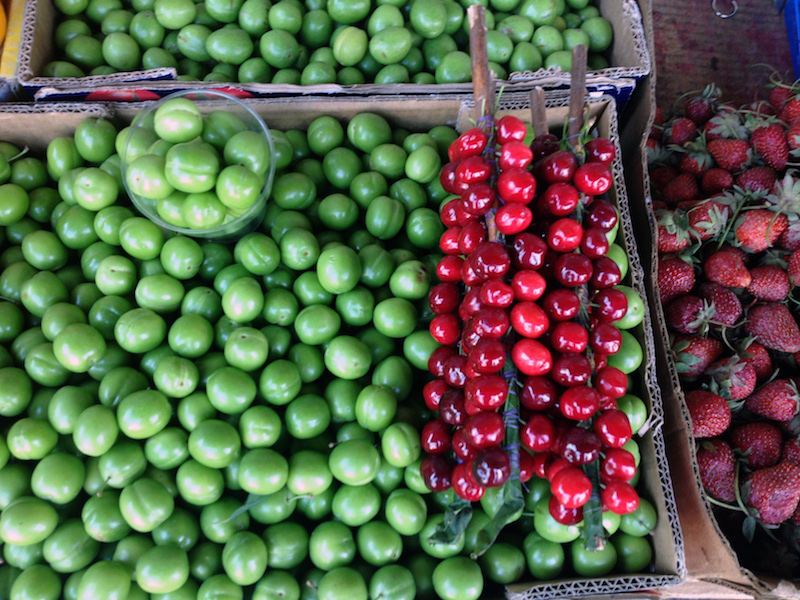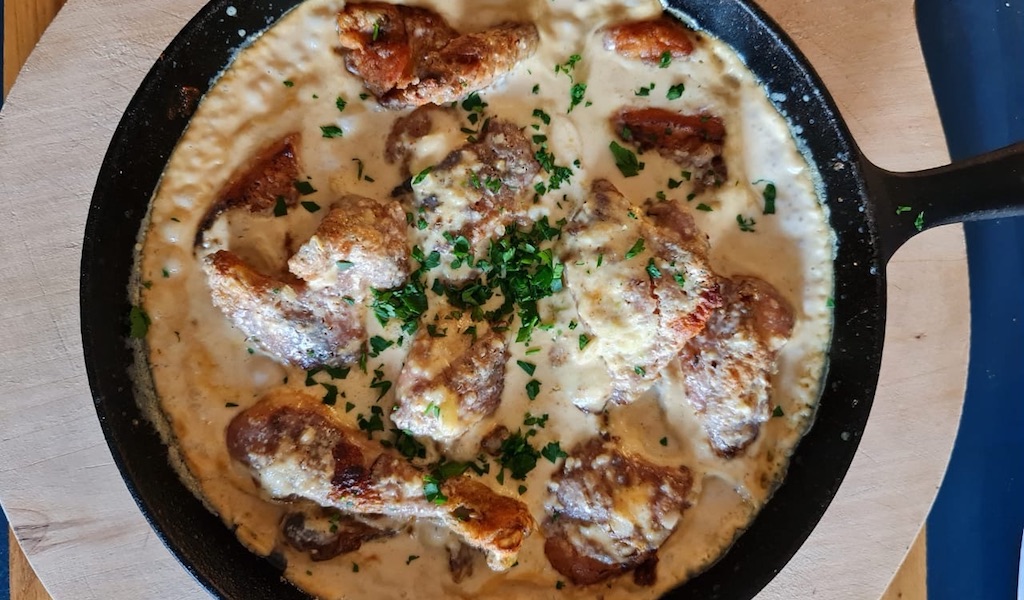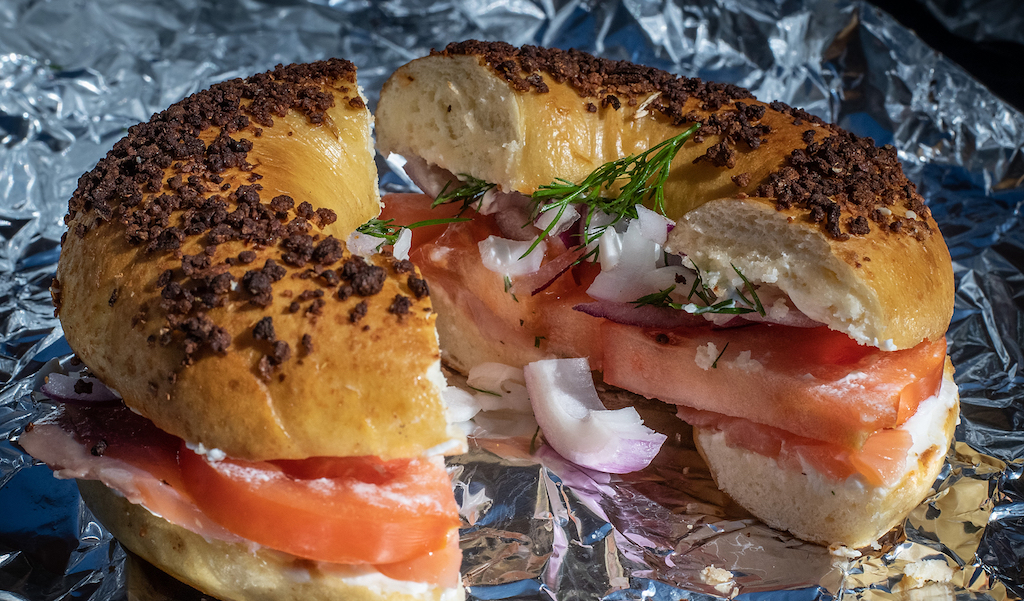We can't find the internet
Attempting to reconnect
Something went wrong!
Hang in there while we get back on track
Search results for "Paul Rimple"
Tbilisi
Tartan: Take-Out Wizards
You are motionless, stuck in a traffic jam after a long day at work while your stomach growls. You know the rest of the family will be hungry when you get home and that the fridge is empty and sad. Shopping and cooking is out of the question, so you turn onto a Vera side street, zig-zag through one-way lanes to Tatishvili Street, double park, and run into a tiny gastronomic oasis that has been saving lives like yours for nearly a decade. Its name is Tartan. Located in a step-down ground-floor apartment, takeout cafeterias don’t get homier than this. The front room is taken up with a long counter of refrigerated display cases half filled with enough ready-made dishes to lay down a feast when you get home.
Read moreTbilisi
Liquid Assets: Lagidze Water, Georgian Nectar
It was our first Tbilisi summer stroll down the city’s main drag, Rustaveli Avenue; two sweaty, newly arrived pie-eyed tourists tripping on the 2001 reality. There were billboards advertising the recent kidnapping of a Lebanese businessman, policemen in crumpled gray uniforms extorting money from random motorists with a wag of their batons, and at the top of the street, a former luxury hotel looking like a vertical shanty was full of displaced Georgians from Abkhazia. Parched and cotton-mouthed, we entered a café of sorts for cool respite. The room had high ceilings, was stark and all marble-tiled, including the long, wide bar. A splendid social-realism mosaic of women, grapes and wine was laid into the back wall. The counter was decorated with a few tin ashtrays and a spinning rack holding several tall cone-shaped beakers filled with technicolored syrups.
Read moreTbilisi
Market Recovery: Tbilisi’s Deserter’s Bazaar, One Year into the Pandemic
We used to live across the street from Dinamo Stadium, on the edge of the Deserter’s Bazaar and part of the Vagzalis Bazroba – Station Bazaar – complex, a sprawling, unhinged confederacy of free-marketers selling everything from counterfeit apparel to contraband from Russia, secondhand cell phones and coffee beans labeled Nescafé. Zaza, a musician and our roommate at the time, served as our guide. His song “Vashlis Gamyidvelo,” about an apple seller who sold him a beautiful but rotten apple, was a big hit on the radio and made him quite the local celebrity. Shopping with Zaza at the bazaar meant lots of discounts and free drinks at the many wine stands back then.
Read moreTbilisi
Mukhrani Nursery: Georgia’s Graft Masters
In March, as the teasing wafts of spring begin to fill the air, local farmers converge at the entrance of the Sunday bazaar in Garikula where they lean against their old jalopies with bundled fruit tree saplings and grapevine seedlings for sale. For someone who wants to start a little backyard vineyard with a handful of vines, the bazaar is a fine place to shop. More ambitious wine growers, however, need to go to a grafting nursery and place an order. In Shida Kartli, one of the largest is run by a family who has been nursing grapevines for generations. Kobe Cherqezishvili, his wife, Maia Dalakishvili, and their sons, Beso and Gio, tend to over 500 varieties at their seven-hectare nursery in Mukhrani, which they opened in 2004.
Read moreTbilisi
Sping (Food) Break 2021: Tkemali, Powered by Plums
There is a day in February when we raise our noses to the sky like dogs and catch the first teasing wisps of spring. Our eyes widen, we nod and chime with giddy grins, “It’s coming.” Then the weather turns with a cold snap or even snow and we forget all about spring until one day in mid-March we wake up, pour a coffee, peer out the window and cry out, “Whoa, look!” jabbing our forefingers towards our tkemali tree and its little white flowers that bloomed overnight; the first blossoms of the year. No fruit says springtime greater than tkemali, which is a cherry plum (prunus cerasifera) harvested young, when it is exquisitely sour. Together with fresh tarragon, it is the basis of the mandatory Easter dish, chakapuli. People are stocked with preserved sour plums just in case Easter falls too early on the calendar.
Read moreTbilisi
Recipe: Shkmeruli, a Georgian Garlic Bomb
When our friend applied for a chef gig at the cooking department of a northern California community college, a board of evaluators gave him a pair of chicken breasts, a frugal selection of ingredients and said, “Create something.” He assessed his workspace and smiled. He saw white wine, chicken stock, butter, shallots and plenty of garlic. He dusted the breasts in flour and hocus-pocus, finished off the dish with a five-fingered pinch of chopped parsley and got the job. Garlic chicken works. Its humble transcendence has conquered the world over – and the more garlic, the merrier. In provincial France they roast a chicken with no less than 40 cloves of garlic for poulet aux 40 gousses d’ail, while Oaxacans make pollo oaxaqueño con orégano y ajo with 30 cloves.
Read moreTbilisi
Bagelin: Conjuring Bagels in Tbilisi
Being an expat means learning to live without a lot of comforts that we ordinarily take for granted back home – things like bagels, ripe Haas avocados, extra-dry Martinis, corn tortillas and enforced traffic laws. Sometimes we meet people who have a hard time adjusting to a life without Pop-Tarts and spend their leisure time whining about everything that’s not like home. Other times you meet a person like Andrew Moffatt. A physicist by education, Andy was crunching numbers as a bank analyst in his native Australia when it dawned on him that there was a hell of a lot more to life than making PowerPoint presentations and status reports. He turned his back on the safe and predictable career and spent the next four years traveling the world, picking up cooking tips along the way.
Read more